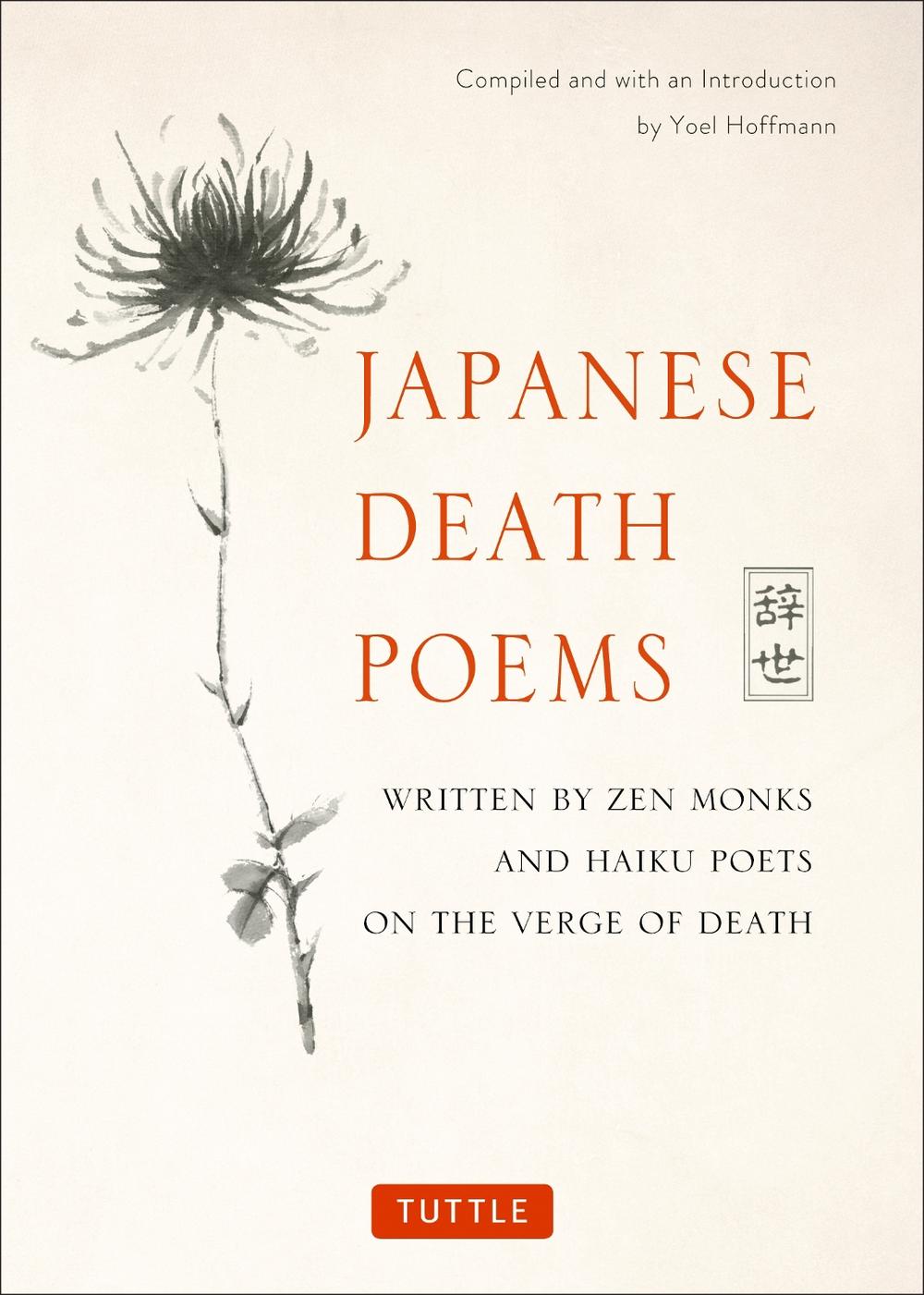
Japanese Death Poems
written by zen monks and haiku poets on the verge of death
$25.02
- Paperback
368 pages
- Release Date
30 April 2018
Summary
Whispers of Eternity: Japanese Death Poems
Although the consciousness of death is, in most cultures, very much a part of life, this is perhaps nowhere more true than in Japan, where the approach of death has given rise to a centuries-old tradition of writing jisei, or the “death poem.” Such a poem is often written in the very last moments of the poet’s life.
Hundreds of Japanese death poems, many with a commentary describing the circumstances of the poet’s death, ha…
Book Details
| ISBN-13: | 9784805314432 |
|---|---|
| ISBN-10: | 4805314435 |
| Author: | Yoel Hoffmann |
| Publisher: | Tuttle Publishing |
| Imprint: | Tuttle Publishing |
| Format: | Paperback |
| Number of Pages: | 368 |
| Release Date: | 30 April 2018 |
| Weight: | 322g |
| Dimensions: | 30mm x 177mm x 129mm |
You Can Find This Book In
What They're Saying
Critics Review
“It’s really just a phenomenal window into an aspect of Japanese culture that I had no exposure to.” — Tim Ferris, The Tim Ferris ShowFeatured in the New York Times style magazine gift guide“There is something so otherworldly and beautiful about Japanese poetry, but especially Japanese poetry about death…poetry and prose regarding death, dreams, and memories have an extra weight and heft to them, whilst still being able to maintain an ethereal, dreamy, nostalgic, cozy warm delivery in their thematic idea exploration.” —Traveling Book Nerds
About The Author
Yoel Hoffmann
Celebrated author, editor, and translator, Professor Yoel Hoffmann (1937-2023) is known as one of the leading Western scholars of Zen Buddhism and of Japanese poetry. Hoffman wrote several books on Buddhism and comparative philosophy, including The Sound of the One Hand, Radical Zen: the Sayings of Joshu, and The Idea of Self-East and West. He was the recipient the inaugural Koret Jewish Book Award, the Bialik Prize, and the Prime Minister’s Prize.
Returns
This item is eligible for free returns within 30 days of delivery. See our returns policy for further details.




